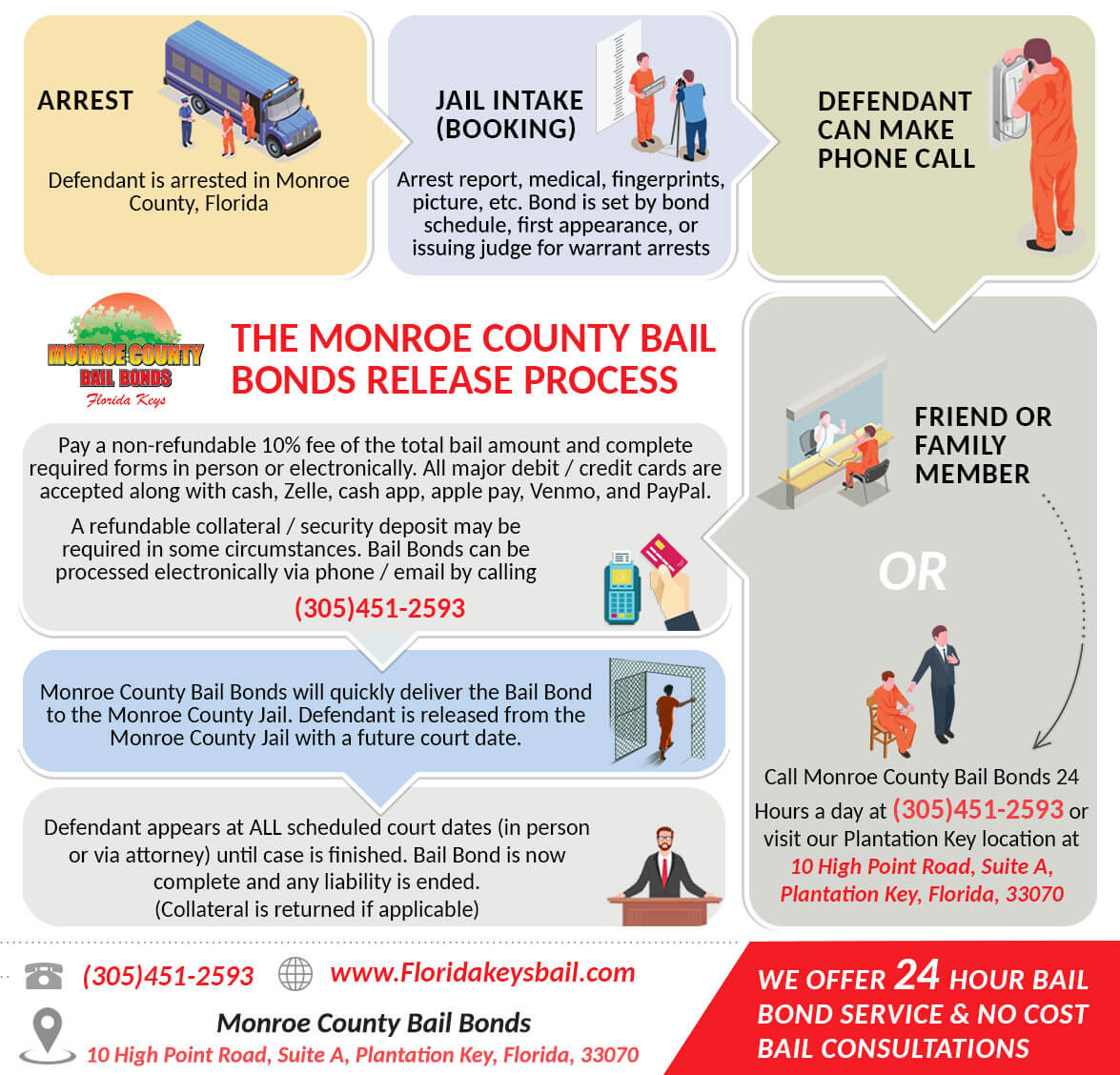Examine This Report on Marion Bail Bonds
Marion Bail Bonds Fundamentals Explained
Table of ContentsSome Known Facts About Marion Bail Bonds.Getting My Marion Bail Bonds To WorkThe 4-Minute Rule for Marion Bail BondsThe Ultimate Guide To Marion Bail BondsGet This Report on Marion Bail BondsThe Best Strategy To Use For Marion Bail BondsSome Known Factual Statements About Marion Bail Bonds

As an example, if a consumer provides a vehicle title as collateral for a funded bail bond, after that misses a repayment, the bail bond representative can not repossess the lorry without providing the consumer correct written notification and an opportunity to cure the financial debt. The ICCC is just one example of a regulation that relates to bail bond representatives.

The smart Trick of Marion Bail Bonds That Nobody is Talking About
These legal actions might be for cash, or in some cases repossession if you offered the bail bond agent a home mortgage on a property. The 2nd kind of lawsuit is based on recovering the "financed premium," i.e. the bond premium that was paid in installations.
Bond is money offered to the court for release. A bond, on the other hand, involves a 3rd event. The difference in between bail and bond is important for those facing fees.
A bond, through a bail bondsman, offers an option. Recognizing the distinction in between bail and bond is crucial for those in the legal system.
Bond is money paid to the court. The court makes a decision how much bail to set. A bond is when somebody else pays the bail if you don't show up.
Some Ideas on Marion Bail Bonds You Need To Know
The bail bond process in the USA is based on constitutional law. The Eighth Amendment of the united state Constitution states bond can not be as well high. This guideline aids make certain defendants aren't billed way too much to obtain out of jail before trial. It is necessary to know the difference in between bail and bond.
State laws also shape the bail bond process. They set guidelines for bail, that can upload bond, and what conditions come with release.
Marion Bail Bonds Fundamentals Explained
It impacts accuseds and their families a whole lot. The bond vs bond process starts when someone is jailed. It's essential to understand the difference between bond and bond.
Courts look at several things when establishing bond. Bail Bonds Marion Ohio. Judges think concerning several points when setting bond: Nature and situations of the violation Weight of evidence versus the defendant Flight risk Neighborhood safety and security Economic sources of the defendant There are different types of bond for launch: Bail Kind Summary Typical Usage Cash Bond Complete quantity paid in cash Lower bond amounts Surety Bond Bail bond representative guarantees payment Greater bail amounts Home Bond Residential property made use of as security Considerable bail amounts Personal Recognizance Launched without settlement Low-risk defendants The bail vs bond process aims to make certain court appearance and secure neighborhood safety and security.
Some Known Details About Marion Bail Bonds
If they agree, they assure to pay the complete bail if the defendant doesn't show up in court. Utilizing a bail bond service costs between 10% to 15% of the bond amount.

It's what the bail bond agent fees for their work. Marion Bail Bonds. For example, if bail is $10,000, the charge might be $1,000 to $1,500. Bail Quantity Bond Cost (10%) Bond Charge (15%) $5,000 $500 $750 $10,000 $1,000 $1,500 $25,000 $2,500 $3,750 Recognizing bond services helps defendants make far better options. It's key to think of the money involved and the responsibilities that come with making use of a bail bond representative.
Marion Bail Bonds for Beginners
The primary difference is that pays the court. Bond suggests the accused pays the sum total directly. Bond, on the other hand, has a bondsman who pays for the defendant. Bail and bond laws vary by state. Some essential distinctions remain the very same. Bond typically needs a bigger in advance repayment but can be returned if the offender complies with court orders.